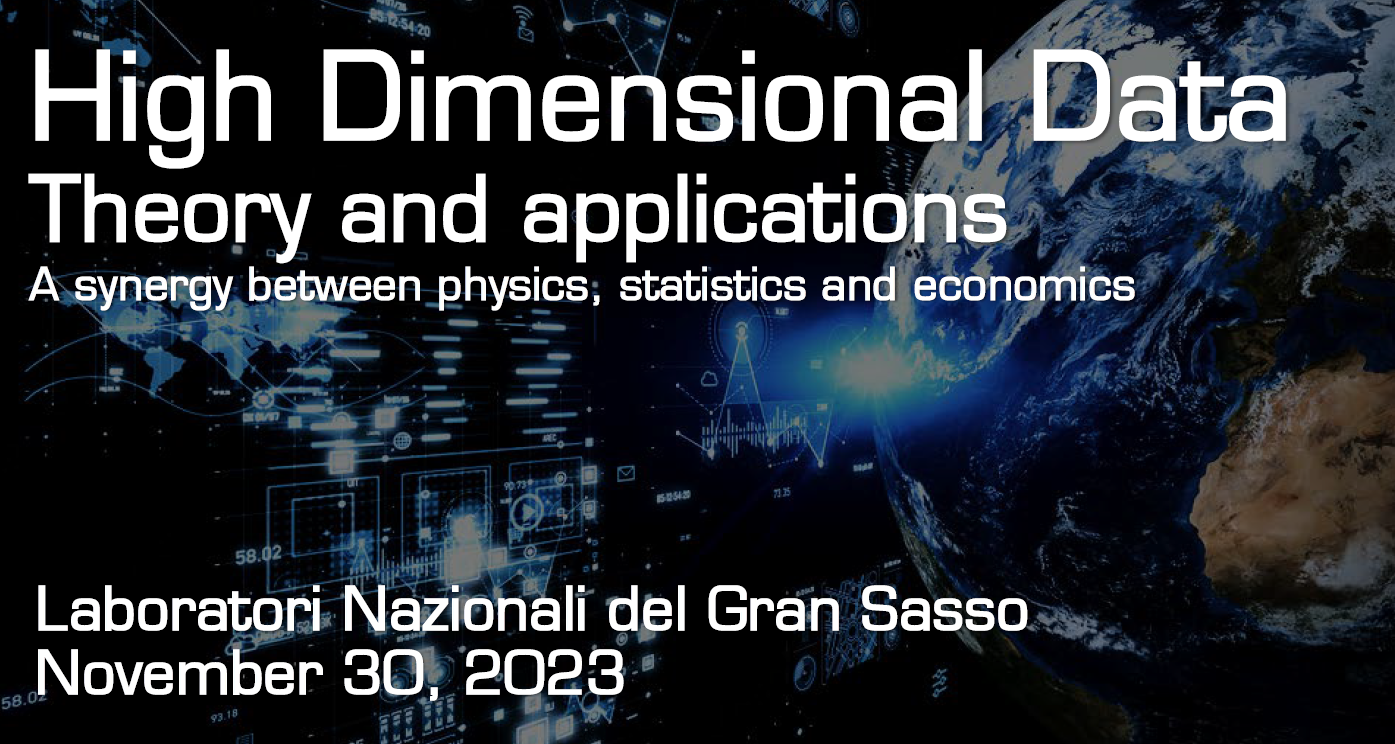High Dimensional Data: theory and applications (A synergy between physics, statistics and economics)
→
Europe/Rome
Room "B. Pontecorvo" (LNGS)
Room "B. Pontecorvo"
LNGS
Description
The importance of high-dimensional data stands in their ability to store a wide range of complex information, pivotal across various fields such as genetics, economics, and meteorology. The inherent complexity of these datasets necessitates new statistical methods and advanced algorithms to effectively manage and interpret them. This workshop will highlight these challenges and present state-of-the-art methodologies and theoretical advances tailored specifically to high-dimensional time series.
---
INVITED SPEAKERS
Marc Hallin (Université Libre de Bruxelles), Marco Lippi (Einaudi Institute for Economics and Finance (EIEF)), Tommaso Proietti (University of Rome Tor Vergata), Alessandro Razeto (INFN - LNGS)
ORGANIZING COMMITTEE
Carlo Bucci, Alfredo Cocco, Nicola D'Ambrosio, Alessandro Giovannelli, Marcello Messina, Nicola Rossi
SECRETARIAT
Martina Buontempo, Fausto Chiarizia, Mara Pace
Contact

